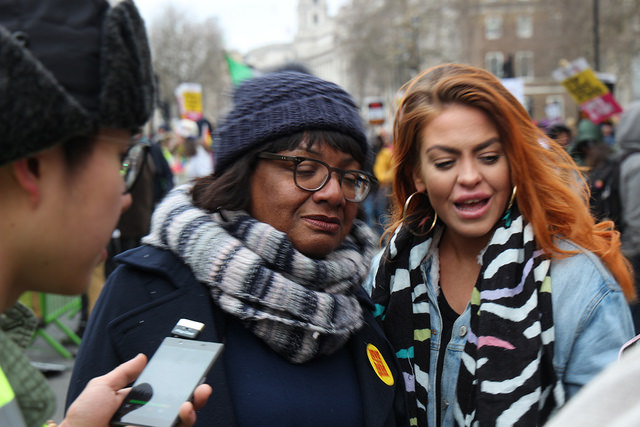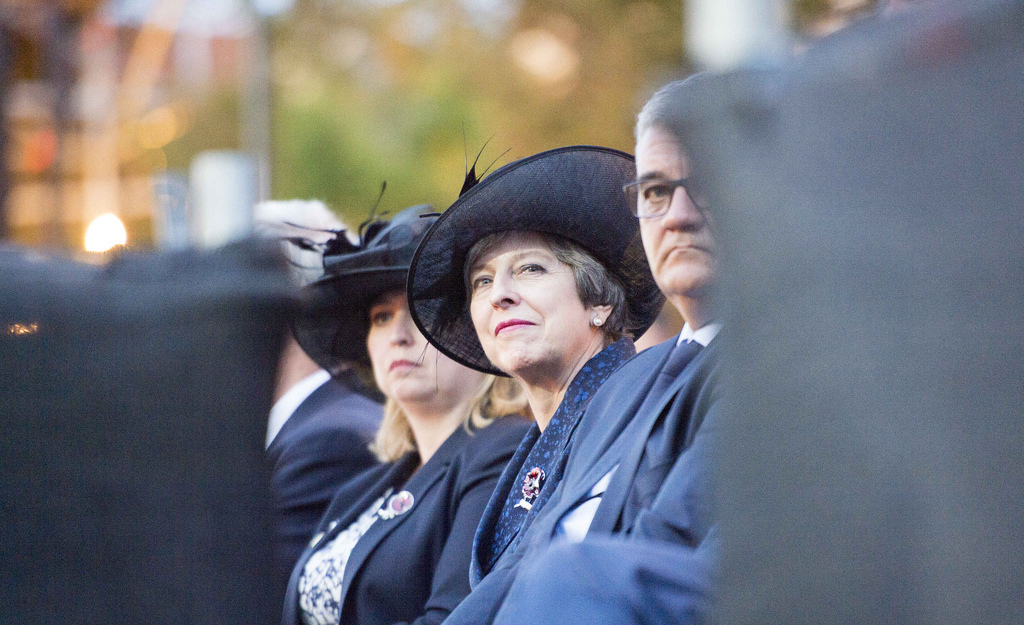Speaking at the Conservative Party Conference in Birmingham, Prime Minister Theresa May has called for unity, using the anniversary of the First World War to start her speech about equality.
Speaking about the cornerstones of our human rights, such as women’s rights, the right to a good home and equality for all, she stressed the need for a “fair society”.
“Alongside a commitment to remember, they inscribed a command which still calls to us today,” she told delegates at the annual gathering. “See to it that they shall not have suffered and died in vain.”
‘The Country Should Become a Fairer Place’

Image Credit: Public Domain
“See to it that they shall not have suffered and died in vain – those words expressed a determination to transform our country,” she continued. “A determination that the men who returned from the quagmires of Passchendaele to their families here in Birmingham and across the land should have homes fit for heroes.
The woman who made munitions, served as firefighters and police officers should have a voice in our democracy.
Theresa May
“The women who made munitions, kept the buses and trains running, served as firefighters and police officers, should have a voice in our democracy. That a country which stood together in solidarity, with people of every class sharing the danger, should become a fairer place.
“Twice in a century, Britain came together to beat the odds and build a better future. Where every person, no matter their gender, no matter their class, has an equal voice. We must recapture that spirit of common purpose. If we come together, there is no limit to what we can achieve, our future is in our hands.”
MPs as Targets for Abuse

Dianne Abbott. Image Credit: John Geoffrey Walker / Flickr
The Prime Minister also touched on other human rights areas, such as hate speech and our right to be free from discrimination like racism.
Speaking about Dianne Abbott, the Labour MP who was the first black woman to be elected, Ms May added that “something has changed for the worse. People who put themselves forward to serve are becoming targets.”
“The first black woman to be elected to the House of Commons receives more racist and misogynistic comments today than when she first stood thirty years ago.
You don’t have to agree with Dianne Abbott to passionately agree with her right to say it, free from threats and abuse.
Theresa May
“You don’t have to agree with Dianne Abbott to passionately agree with her right to say it, free from threats and abuse.”
Online abuse has become a massive human rights issue over the last few years, with a fierce clash between those who believe the right to free speech should be unrestricted, and others who call for safeguards against discrimination and protecting equality – for example, legislation against hate speech.
The Prime Minister also stressed that equality was one of the key values of her party, pointing to both Ruth Davidson, leader of the Scottish Conservatives, and Home Secretary Sajid Javid.
Our little family of three is becoming four…. pic.twitter.com/Wpfk5eOaky
— Ruth Davidson (@RuthDavidsonMSP) April 26, 2018
“If your parents arrived on a plane from Pakistan you can become the home secretary,” she told the conference.
“If you are pregnant and engaged to your girlfriend you can become the next first minister of Scotland.”







